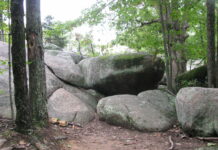Photo credit: DiasporaEngager (www.DiasporaEngager.com).
- The EAC has announced investments in wind and solar energy infrastructure.
- Member states have launched various initiatives designed to catalyze and grow the use of renewable energies on one hand and energy conservation on the other.
- To achieve this ambitious green future, the bloc needs political will, regulation, and the creation of national renewable energy laws.
The East African Community (EAC) partner states are working to enhance energy efficiency in the bloc even as reports show some members are doubling down on projects enhancing the extraction of fossil fuels.
During the Ministerial Session of the 16th Sectoral Council of Energy held at the EAC Headquarters in Arusha, Tanzania, the six-member bloc announced investments in wind and solar energy infrastructure, driving the region closer to an era of green economy.
Although the exact amount of investment was not specified, the ministers highlighted the goal of utilizing wind, solar, and geothermal energy as sustainable sources for a green economic future.
EAC bloc targets energy efficiency systems
With these goals in place, the EAC partner states have launched various initiatives designed to catalyze and grow the use of renewable energies on one hand and energy conservation on the other.
To achieve this ambitious green future, the bloc needs political will, regulation, and the creation of national renewable energy laws. Most member states have already implemented energy management regulations, national strategies, and set up standards for energy efficiency.
For example, Kenya has several wind and solar projects, while Burundi has large-scale, operational solar mini-grids spread across the country. Rwanda and Tanzania also have solar energy projects, as does Uganda, which has directed solar as the solution for rural electrification.
The ministers also announced plans by the partner states to explore mini-hydro projects and transform biomass energy sources into large powerhouses.
Policymakers across the economies seek to not only to increase renewable energy use but also to conserve energy, including enforcing sustainable charcoal production and other bioenergy strategies.
Chairperson Shaib Hassan Kaduara, the Minister of Water, Energy, and Minerals from the Revolutionary Government of Zanzibar (standing for the Republic of South Sudan, the current Chair), underscored the significance of the energy sector in achieving socio-economic development.
In his speech, he pointed out that “Energy plays a critical role in industrial development and investment promotion, and therefore access to reliable, safe, and cost-effective energy is not optional but compulsory if our region is to realize its development objectives.”
Tanzania stood in place of the absent current Chair of the meeting, as the country had a huge energy announcement: the official launch of Tanzania’s Julius Nyerere Hydropower Plant scheduled for February 25th, 2024.
Tanzania renewable energy supply
The hydropower plant has a capacity of generating 2,115 Megawatts and marks a major milestone that will serve to bridge the energy deficit not only in Tanzania but in the entire regional bloc and beyond.
“Most people still rely on biomass, which is inefficiently utilized and degrades our environment,” commented the EAC Deputy Secretary-General in charge of Customs, Trade, and Monetary Affairs, Ms. Annette Ssemuwemba.
“As a region, we must focus on sufficient, reliable, and cost-effective energy to meet our development needs. In this regard, there is a need to come up with recommendations for solutions that will guide the sector,” she noted.
However, despite this visionary clause, the region still remains behind in energy output. It is hoped that following this meeting, the Ministers will push for more tangible political commitment to increase energy output and invest in renewables.
Read also: Kenya’s Electricity Imports from Ethiopia, Uganda Double to 706.9 million kWh
EAC members still pursuing fossil fuel sources
At the high-rank EAC ministers’ meeting, it was also highlighted that the EAC member states may be pursuing a green future but have not altogether forsaken fossil fuels.
To promote petroleum exploration and development in the region, the Sectoral Council of the EAC has approved the 11th East African Petroleum Conference and Exhibition 2025 (EAPCE’25), scheduled to be held from March 5th to 7th next year in Tanzania.
“Notable progress includes Kenya’s commercial oil discovery in the South Lokichar basin within the Tertiary rift basin, with an estimated 2.9 billion barrels and a recoverable estimate of 585 million barrels,” reads the EAC report.
Just across the border in Tanzania, the country is getting ready to launch its 5th licensing round of oil and natural gas exploration blocks both onshore and offshore.
Then in Uganda, there are even larger petroleum ambitious plans with the near completion of the construction of the East African Crude Oil Pipeline (EACOP) project. Installation will begin this May 2024, according to the media communique.
The region has a total power supply installed capacity of 7,381.67 Megawatts, which is a considerable surplus for a region that has a demand of only 4,811.2 Megawatts.
Ironically, several countries in the bloc, including Tanzania, the meeting host country, are facing load shedding and causing massive blackouts throughout the country.
It is no secret, the distance between power potential and actual implementation remains huge. To address this, the EAC ministers acknowledged that challenges in electricity supply persist, and they blamed it on vandalism of electricity infrastructure.
“To combat this issue, partner states have committed to implementing mitigation measures such as copper-plated earth rods, regulating scrap metal transactions, and community sensitization,” it was reported.
Read also: Will charcoal ban stop Tanzania’s appetite for firewood?
Source of original article: Industry and Trade – The Exchange (theexchange.africa).
The content of this article does not necessarily reflect the views or opinion of Global Diaspora News (www.GlobalDiasporaNews.com).
To submit your press release: (https://www.GlobalDiasporaNews.com/pr).
To advertise on Global Diaspora News: (www.GlobalDiasporaNews.com/ads).
Sign up to Global Diaspora News newsletter (https://www.GlobalDiasporaNews.com/newsletter/) to start receiving updates and opportunities directly in your email inbox for free.

































